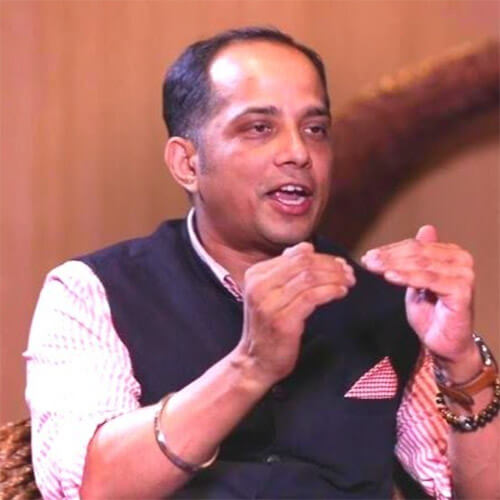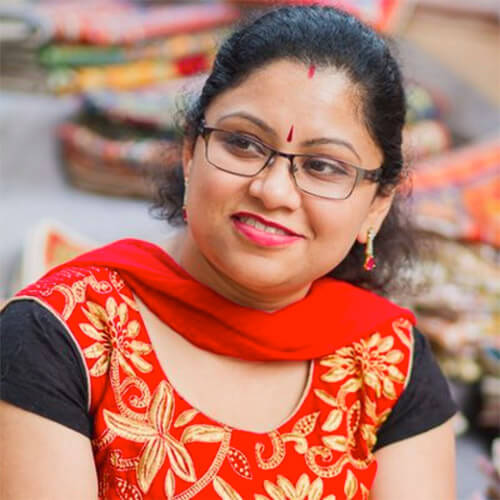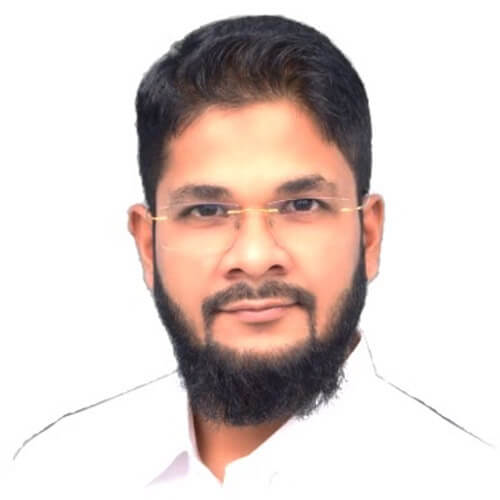- December 5, 2021
- Posted by: admin
- Category: BitCoin, Blockchain, Cryptocurrency, Investments
Blockchain technology offers a great many advantages to many industries, with the financial sector being one of the most notable examples. It has the potential to have an even greater impact in developing countries, where blockchain-enhanced fintech can help improve financial accessibility for the 1.7 billion unbanked people around the world through services such as peer-to-peer loans and alternative currency payments and investments.
This Is why it should come as no surprise that, while most of the first wave of cryptocurrency influencers such as Erik Voorhees, Charlie Lee, Tim Draper, Andreas Antonopoulos and many more all hail from first-world Western countries, it is from the developing countries that some of the technology’s biggest thought leaders can be found.
In fact, four highly respected champions of blockchain technology are Odia, referring to people who originate from Odisha, a state in the Indian subcontinent. Despite being one of the poorest states of the country, Odisha has produced four trailblazing journeys, united by both geographic origin as well as their respective challenges in the tech industry. In particular, these personalities are making their mark in the world of blockchain, in remarkably exciting times for disruptive technology.
Sopnendu Mohanty, Chief Fintech Officer of MAS (the Monetary Authority of Singapore)

Sopnendu Mohanty got his start in the IT industry back in 1995, following both a Bachelor’s and Master’s degree in information science. In 1997, he moved to Japan to join Citigroup’s product and services development division. He would stay with the company for 18 years, eventually being promoted to Head of Citigroup’s Asia Pacific Branch Operations, and then later to Head of Citigroup’s Global Consumer Lab.
In 2015, Sopnendu Mohanty left Citigroup and joined the Singapore government-run Monetary Authority of Singapore (MAS) as Chief Financial Officer. At MAS, he has helped contribute to Singapore’s rise as one of the world’s top fintech hubs.
In addition to his work at MAS, Sopnendu is also an avid speaker and global thought leader in fintech, and an outspoken advocate for an accelerated transformation to a digital blockchain-based economy.
“Having a distributed ledger by design takes away the whole complexity behind settling things, checking things. And it allows some of the business rules to be built into the use cases — the payment process, the settlement process, the underlying business rules can be encoded to a single stream,” said Sopnendu Mohanty.
“There are two different processes in today’s world. There’s a process where you pay each other and there’s a process in which we exchange goods and services. Blockchain digital currency brings together these two processes into a single process in which you’re not only paying each other but also ensuring that goods and services are exchanged at the point of payment.”
In September 2021, the MAS granted DBS Vickers — a subsidiary of DBS Bank, the largest bank in Southeast Asia — a license to officially offer cryptocurrency services.
“This is a natural progression in any innovation and there has been a very clear growing interest in digital assets,” Sopnendu Mohanty said.
“Fintechs are always pushing banks out of their comfortable traditional finance space. It’s very encouraging for us to see DBS think about such new areas where they can add value and create a new service. This is truly a sign of the maturity of the Singaporean fintech sector. Here, we don’t see a difference between fintechs and banks. Both are complimentary, they come together and work together.”
Mriganka Pattnaik, CEO and Co-founder of Merkle Science

Hailing from the ancient city of Bhubaneswar in Odisha, Mriganka Pattnaik got his fintech career off the ground with numerous internships even before he finished his technology Bachelor’s degree from ITT Guwahati in 2013. Upon graduation, Mriganka went straight to work at Bank of America as an analyst in their Mumbai branch.
Two years later, he left to found his first company, Datatrix Healthcare Technologies, to help people remotely order medication and home diagnostic tests from nearby pharmacies.
“I saw an opportunity to address a need and to this day, I believe that entrepreneurship is the most direct way to bridge these gaps,” Pattnaik said
“Unfortunately, there was a lot of regulatory ambiguity in the area of online pharmacies. It was difficult to understand the full picture in terms of risk. Through this experience, I understood how regulatory ambiguity can really hinder innovation and hurt early startups. Afterward, I moved to Singapore in 2016 to work at Luno, a prominent crypto exchange, to support strategy and country-specific execution across three continents.”
During his time at Luno, he witnessed firsthand the compliance challenges faced by digital asset businesses in diverse jurisdictions and the key role regulations play in the industry’s health and sustainable growth. He then joined the Entrepreneur First tech incubator where he met Nirmal Aryath Koroth, with whom he co-founded his second company, Merkle Science, in 2018.
Merkle Science is a risk and intelligence platform that helps companies and government organizations detect, investigate and prevent illegal activities involving cryptocurrencies.
“As blockchain and cryptocurrency gained popularity, more financial institutions, retail platforms and governments started adopting the technology. Unfortunately, as the legitimate use cases rise, so does its illegal use,” Pattnaik said. “In 2020 alone, it is estimated that more than 12 billion dollars worth of crypto was involved in illicit transactions.”
“Unsurprisingly, this has led to many governments around the world introducing new laws and regulations that govern how cryptocurrency businesses can operate. These new regulations seek to mitigate the risk that comes with cryptocurrencies. However, these new laws and regulations have made it difficult for companies to work with cryptocurrencies and they struggle to figure out how to comply. With these new laws, there is then a need for new-age solutions and this is where Merkle Science comes in. We have developed a suite of solutions designed to make use of the blockchain’s transparent and traceable nature in order to help businesses identify and protect themselves against criminal use,” commented Pattnaik.
Debajani Mohanty, Bestselling Blockchain Author

Debajani Mohanty is the bestselling author of five books on blockchain and was ranked among the top 30 Blockchain influencers from India on Singapore Fintech news as well as the world’s top 100 blockchain social influencers by Piktale awards. Born in coastal Odisha, she studied Electronics and Telecommunications Engineering at Sambalpur University before launching straight into what would become a 24-year career (and counting) devising software solutions for companies from India and, since 2020, England.
She got her feet wet with blockchain in 2017, from which point she has worked in development using numerous blockchain technologies. “The true potential of blockchain is yet to be realized,” Debajani Mohanty said. “We need much more dedicated research.”
Debajani Mohanty’s books range from broad blockchain overviews for new students on the subject, such as her five-star books “Blockchain for Self Sovereign Digital Identity” and “Ethereum for Architects and Developers”, to deep-dive courses on the specific blockchain technologies R3 Corda, Ripple and Ethereum. She has also published a novel focused on themes of the empowerment of women, titled “The Curse of Damini”, for which she was honored with the Arya award by Nobel Peace prize winner Kailash Satyarthi.
Since the beginning of her blockchain career, she has tried to share her learning through books, blogs, videos and live sessions at numerous blockchain summits in India and abroad. She stresses that “propagating knowledge especially to business leaders and decision-makers is the need of the hour, as they have the authority to carry forward this blockchain journey to the next level.”
According to Debajani Mohanty, the next big trends in blockchain are expected to be CBDC, Decentralized Identity and enforcement of data acts (GDPR, CCPA, PDPA etc.) in handling personal data leading to privacy-preserving solutions.
Naquib Mohammed, CEO / Founder of MRHB DeFi

Born in the city of Cuttack, Naquib Mohammed studied information technology at the Kalinga Institute of Industrial Technology in Bhubaneswar. He then spent more than a decade in information technology, starting as a software engineer then later as a business architect, working for companies across the globe.
“My interest in cryptocurrency really started to get serious after spending a few years learning and working on enterprise use cases of distributed ledger technology in the bull run of late 2019,” said Naquib Mohammed.
“As an enterprise architect, researching the growing IT market was a natural move, and this is where I noticed blockchain as an important part of Industry 4.0 technologies.”
Mohammed was invited to Australia in 2020 by invitation of the Australian government as a “Distinguished Global Fintech Talent”. There, he dove headfirst into blockchain technology, devoting 7-8 hours a day to study and learn the technology.
“During this tenure, I completed over 15 certifications in different areas of blockchain within a six-month span.”
In April of 2021, after working at another startup he decided to launch his own pioneering decentralized finance startup, MRHB (pronounced Marhaba) DeFi. This was to address what he felt was a major gap in a crypto space that excluded many communities due to their faith (in particular himself as a Muslim), lack of access and technological complexity. The demand for financial services which are consistent with faith principles is evidenced by the Islamic Finance industry, currently worth around $3 trillion USD.
In addition, Mohammed wanted to build a more empowering, ethical and community focussed project that would cater to those new to crypto and also address the negative perception created by extensive instances of fraud, risk and opacity in the sector. As such, he hopes to create a more ethical and inclusive project that benefits everyone regardless of faith.
“As our platform is based on very high ethical standards, one of our product offerings is a crypto-based donations platform, the DePhi, a decentralized philanthropy protocol, planned in Phase 2. We sincerely hope to attract investors from all walks of life who are interested in making sure their investments have some form of social impact in addition to benefiting from the wealth opportunities of the cryptoverse,” explained Mohammed.
“By approaching the new crypto economy with a more ethical approach from the very start, we can all do our part to create a more equitable and more inclusive future for all.”
A landmark project in the DeFi ecosystem, being the first to target the USD 3 trillion Islamic Finance ecosystem and other excluded communities, MRHB DeFi is notably backed by Polygon Technology. A prominent Layer-2 blockchain, Polygon is supporting the development of the first dApp focussed on the Islamic and ethical finance sector.
With their blockchain stories impacting different industries and use-cases, from regulations, compliance, intelligence gathering and security to education, ethics, inclusion, and philanthropy, these blockchain personalities are an inspiration to people all over the world who wish to be involved in the revolutionary technology.
As the blockchain and decentralized finance movements sweep across the world, we will undoubtedly see more professional representation from everywhere. Hopefully, blockchain innovators and startup founders from underdeveloped economies especially will find great success, for these are the regions where the technology can do the most social good. Financial services such as zero-fee payments and transactions, peer-to-peer loans and all manner of banking transactions for excluded communities are possible in the realms of blockchain and cryptocurrency.
We need only for more pioneers to step up and seize the opportunity.
The post Four inspiring blockchain journeys and stories from Odisha, India appeared first on CryptoSlate.
